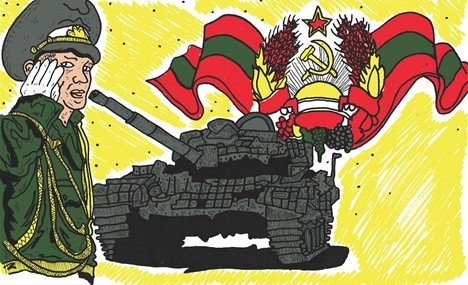How Big Business Attempts to Hijack the Popular Vote to the Supreme Council of Transnistria in 2020
On November 29, 2020, parliamentary and local government elections will be held in Transnistria. Following the elections, 33 deputies of the Supreme Council and 895 members of village, district and city councils, as well as heads of villages and townships will be appointed. This will be the seventh electoral cycle (2020-2025) in the internationally contested state since its formation in 1990. One can now say that the results of this election campaign, specifically for the parliamentarians to the Supreme Soviet, will have a negative impact on the entire political system of Transnistria. In order to understand the possible negative consequences of the parliamentary elections, it is necessary to recall several facts about how the elections were organized and political landscape shaped in the previous years. For example:
- Since 2000, Transnistria has been using majoritarian system in elections to parliament and local self-governing bodies.
- In 2000-2015, the struggle for parliamentary control was usually battled out between two large political groupings – the Renewal party, supported by the Transnistrian business monopoly, Sheriff; and the political parties/movements that were created with the support of the administration of the President of Transnistria. At the same time, representatives of other political organizations also actively participated in the election campaign. For instance, in 2010 and 2015, an average of four candidates run for a parliamentary seat.
- Despite the fact that from 2005 to 2015 the Renewal party won the parliamentary majority, the Presidency, over which big business did not have control, remained the real center of power in Transnistria.
- In June 2018, the 25% turnout threshold for parliamentary elections that had existed since 2000 was abolished. Now the elections will be recognized as valid with any voter turnout, no matter how big or small.
- In July 2019, the size of the Transnistrian parliament was reduced by 10 people from 43 to 33 members.
After the election of Vadim Krasnoselsky as President of Transnistria in 2016, the level of influence of big business on the socio-political situation in the republic had gained the maximum effect. At the same time, the institutional weakness of the current multi-party system in the republic began to manifest itself. The lack of financial mechanisms to support parties, a complex legislative framework for registering political associations, as well as the concentration of power in the hands of big business led to a monopolization of the political space and the absence of real competitors for the Renewal party.
It is expected that after five years of being in political power, big business is interested in maintaining its dominant position. To solve this problem, it will be necessary to ensure an unconditional victory for their candidates in the parliamentary elections on November 29th. So far, there are no solid indicators suggesting that the ruling party has not been able to solve this problem. The unknown lies within the population; no one yet knows what to do with the results of such an election outcome.
Loneliness of the Renewal party
On October 29th the nomination phase for candidates ended, which allowed for the first tallying up of the interim results. According to the information of the Central Electoral Commission of Transnistria, a total of 50 candidates were nominated. Two candidates withdrew their applications, and four candidates were denied registration. As of November 3rd, 44 candidates for parliamentary seats were officially registered. In the 25 constituencies, elections will be held single-headed without offering any alternative; all candidates coming from the Renewal Party, and representing Sheriff’s interests. It is also important to note that out of 44 candidates, 32 are already current members of the parliament.
This situation is the result of a monopolization, not only of the economy, but also of political life in Transnistria. To reiterate: over the last 10 years the average number of candidates per constituency was four people. Regarding the uncontested candidates in the constituencies, in 2010 there were only two: Petr Pasat and Vyacheslav Tobukh. In 2015, there were also two uncontested candidates: Dmitry Ogirchuk and Igor Yarych. In such conditions, there is no doubt that Sheriff will retain control over the parliament.
In the context of such uncontested voting, at least two questions arise. Firstly, what kind of criteria can provide the circumstances under which the elections to the Transnistrian parliament can be considered legitimate? Can it be considered legitimate if in 24 out of 33 constituencies there will be “one man shows” representing Sheriff’s interests? Secondly, to what extent will the new composition of the Transnistrian parliament be able to proportionally represent the interests of voters in such conditions?

Image: An accurate description of the elections in Transnistria (Source: www. politnavigator.net)
An interesting fact is that in the Transnistrian society itself, the attitude towards such elections is more critical than one might think. For the first time, information campaigns are gaining momentum in the social networks of Transnistria. They are urging citizens to ignore so called “elections without choice”, or to come out and vote “against all”. It is difficult to predict what the turnout of these elections will be, but the results are already causing doubts in society in terms of fairness and political legitimacy of the new Transnistrian parliament. A legitimate question is why is big business so blatantly creating this farce? It can be assumed that Sheriff has simply decided to minimize all risks. For the sake of expected victory, the ruling party has reduced electoral process to a simple fixation of the well-prepared result. This is, after all, the first power grab as the Renewal party has never organized elections before. It is time to face the music.
Author: Anatoly Dirun






